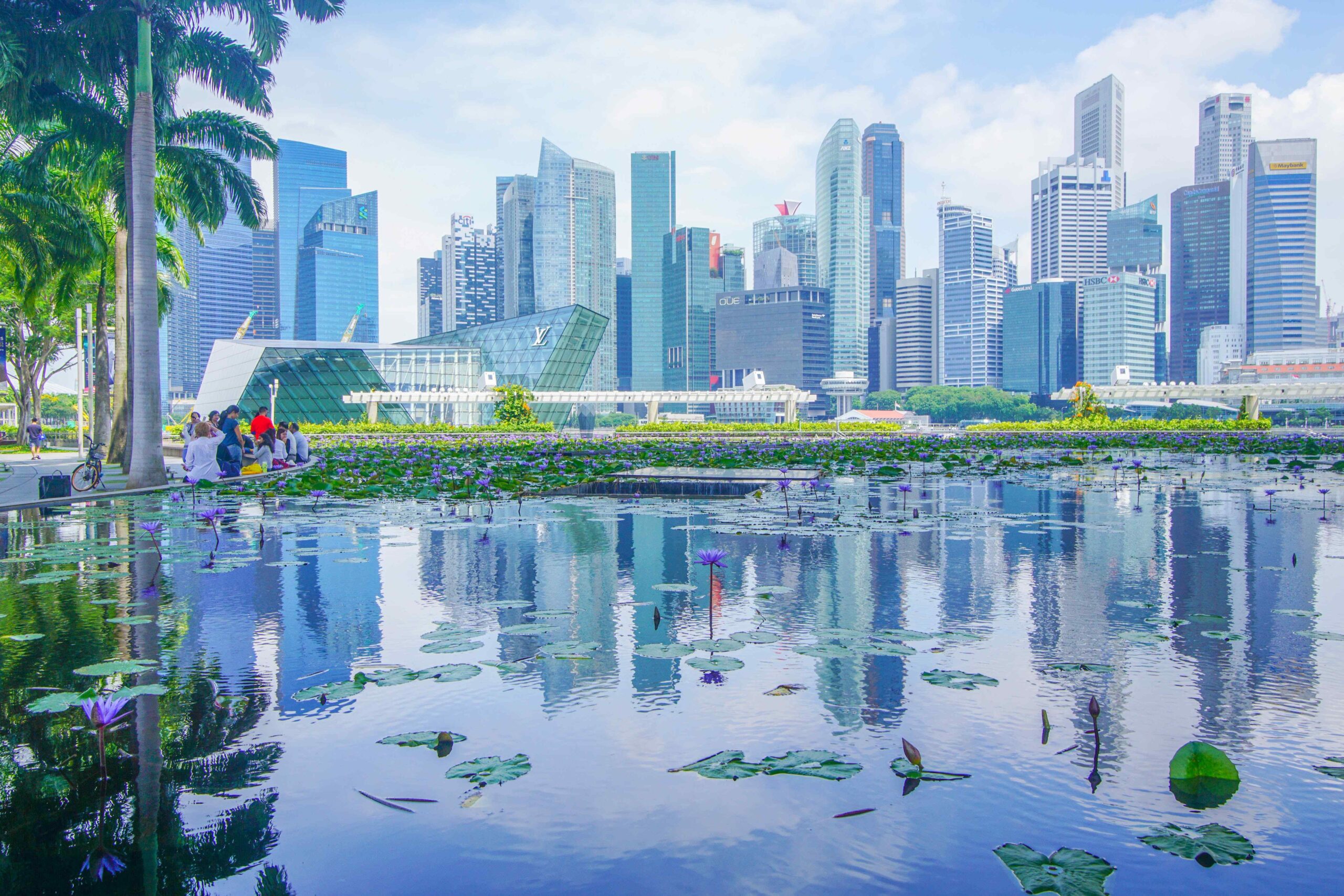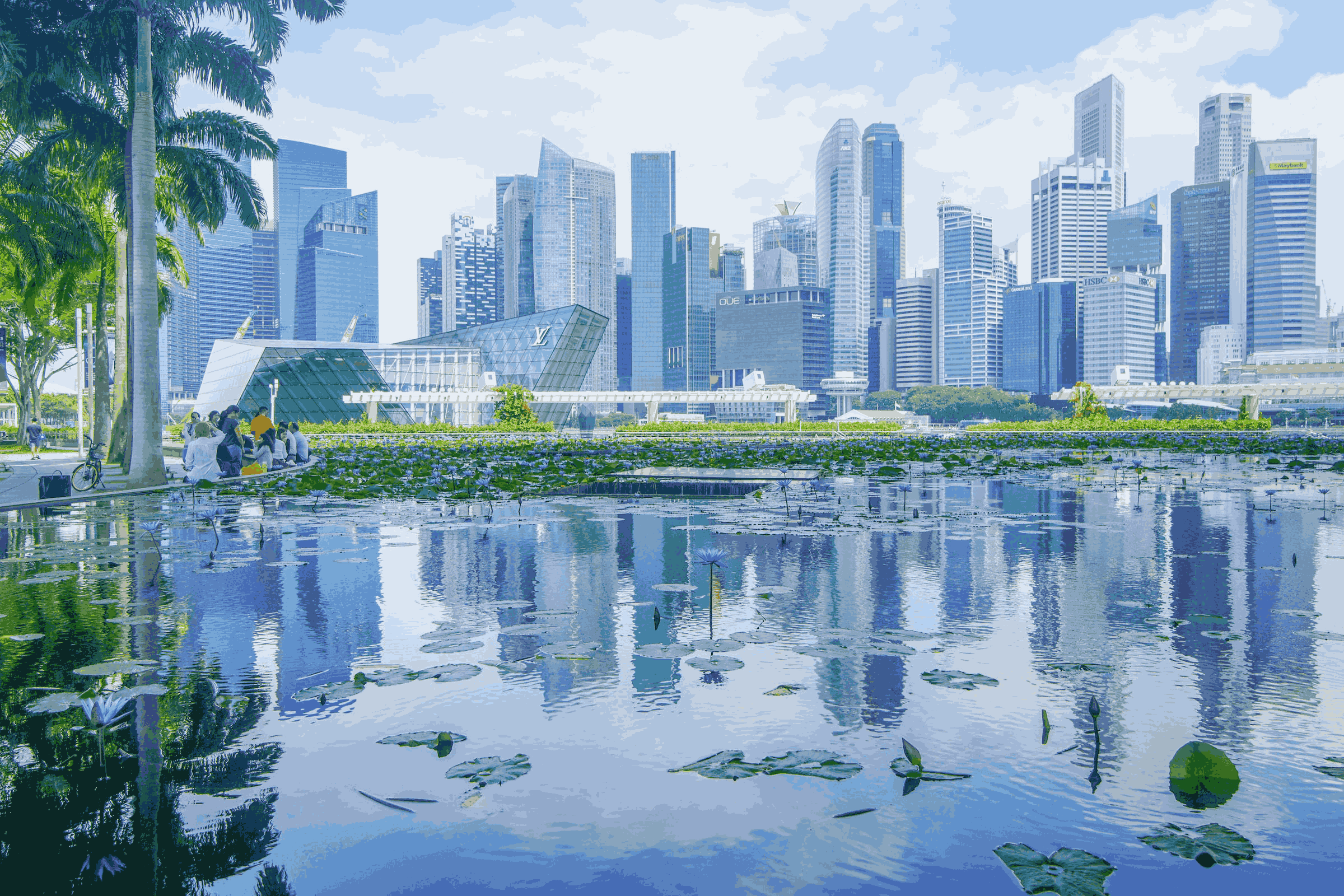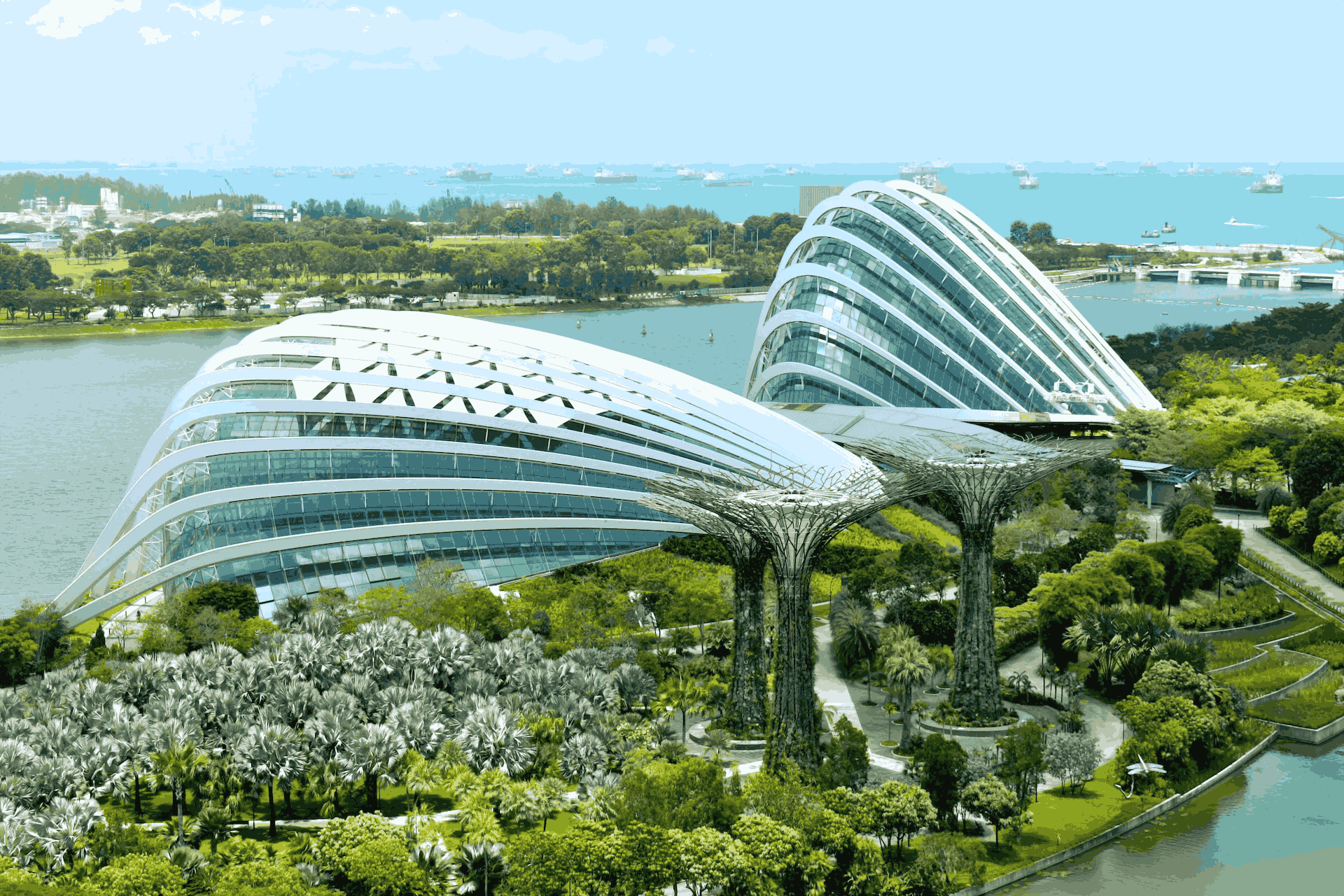Eco-Friendly Travel Guide: Green Hotels & Water Vacation Essentials
Eco-friendly travel has become a new focus of the tourism industry, evolving to cater to a new generation of travelers who prioritize green hotels and water travel as part of their commitment to environmental sustainability. From the careful choice of a reusable water bottle to the mindful reduction of plastic waste, sustainable practices are becoming mainstream. Incorporating these principles into daily life while traveling is no longer just a trend but an essential aspect of responsible tourism. Train travel, once considered old-fashioned, has re-emerged as a preferred mode of transport, not just for its romance but for its lower environmental impact compared to air travel. Together, these factors illustrate the growing commitment to responsible travel, aligning the enjoyment of water-based vacation experiences with the global movement to protect our planet.
Focusing on responsible tourism, green hotels, sustainable transport methods, and eco-friendly destinations and practices, this travel guide explores various ways travelers can enjoy water-based activities and locations in an environmentally friendly manner.
What Are the Most Environmentally Friendly Travel Methods?
Environmentally friendly travel methods are gaining traction as more travelers commit to minimizing their environmental impact in every aspect of their journey, from accommodations to transportation, and even the destinations they choose. This growing awareness has led to a demand for more eco-conscious options. Every choice made, from the mode of transport to how travelers engage with their destinations, has implications for the planet. In this section, we explore various methods that align with sustainability principles, offering environmentally friendly alternatives to traditional ways of getting around.
Public Transport on Land: Rapid Transit Systems
Public transport is a vital part of the movement towards eco-friendly travel, offering a reduction in carbon emissions and energy consumption compared to personal vehicles. This includes options like trains, buses, electric scooters, and bicycles, which are often more energy-efficient than other forms of transport.
Trains are especially appealing for sustainable travel, with many countries in both Latin America and Asia investing in railway systems that have a significantly lower carbon footprint compared to short-haul domestic flights. For example, Japan’s Shinkansen bullet trains are renowned for their energy efficiency, while cities like Bogotá, Colombia have made strides in providing eco-friendly public transportation with bus rapid transit systems like TransMilenio.
Non-Stop Flights: Efficiency of Direct Flights & IATA’s Efforts
Direct flights are an integral part of the travel industry’s efforts towards sustainability. These flights, which eliminate layovers and additional take-offs and landings, consequently reduce both fuel consumption and harmful carbon emissions. The efficiency of direct flights not only minimizes carbon dioxide emissions but also cuts costs, making it an attractive option for both travelers and airlines.
The International Air Transport Association (IATA) and the aviation industry are working diligently to further decrease air travel’s environmental impact. They are exploring renewable energy solutions, including renewable biofuels and solar energy, moving towards a more carbon-neutral future. Airports worldwide are also contributing by adopting sustainable measures like energy-efficient lighting and waste reduction programs.
Water Transport: Boats, Non-Motorized Watercraft, and Sustainable Cruise Lines
Water transport can also play an integral part in sustainable travel. Here’s how:
- Electric or Solar-Powered Boats: Many coastal and lake destinations are now offering electric or solar-powered boats for tours or personal rentals. These boats provide a quiet and emissions-free way to explore waterways.
- Kayaking and Canoeing: Non-motorized watercraft like kayaks and canoes allow travelers to get close to nature without any harmful carbon emissions or noise pollution. This slow travel method also encourages a more mindful and connected experience with the surroundings.
- Sustainable Cruise Lines: Some cruise lines are embracing sustainable practices such as reducing single-use plastics, employing renewable energy sources, implementing advanced wastewater treatment, and engaging in carbon offset programs. Some cruise operators that prioritize these practices to minimize their environmental impact are: MSC Cruises, Costa Cruises, Princess Cruises, and
Green Hotels: What Are Eco-Hotels?
Green hotels, or eco-hotels, are accommodations committed to sustainability and environmentally responsible practices. Emphasizing energy efficiency, waste minimization, water conservation, and eco-friendly water management, these hotels often seek certifications such as LEED, which sets benchmarks for design, construction, and operation. Features may include energy-efficient lighting, solar panels, low-flow water fixtures to reduce water usage, recycled materials, and sourcing local organic produce.
What is Green Hotel Design?
Green hotel design integrates innovative architecture and planning to prioritize sustainability. Utilizing renewable energy sources like wind or solar power, efficient waste management systems, natural lighting, energy-efficient appliances, and sustainable water practices like rainwater harvesting, green hotel design aims to minimize environmental impact. LEED certification can serve as a key indicator of a hotel’s commitment to eco-friendly practices.
Green Hotels Around the World:
Green hotels are part of global efforts to protect the environment, and staying in one is a way to enjoy an enriching vacation experience while nurturing the earth. These accommodations minimize environmental impacts and conserve natural resources, including the sustainable use of water. Renowned examples include the Lapa Rios Lodge in Costa Rica, known for its rainforest conservation efforts; the Parkroyal on Pickering in Singapore, famous for its sky gardens; and the Ion Adventure Hotel in Iceland, celebrated for its use of geothermal energy and commitment to sustainability. Opting for green hotels is a conscious decision that reflects a love for nature and a commitment to sustainable living.
Eco-friendly Travel Destinations and Transportation
Responsible tourism is making a notable shift towards responsible and regenerative practices across the globe, inspiring destinations to reimagine traditional tourism approaches. Many of the world’s greenest cities are pioneering sustainable solutions, recognizing the importance of every form of transportation in reducing carbon emissions. Whether it’s promoting public transport, adopting renewable energy, or protecting native ecosystems, these destinations offer the eco-conscious traveler a way to enjoy stunning landscapes without compromising on ethical values. Let’s explore some of the most significant conscious destinations leading this change:
Costa Rica: Eco-Tourism in a 98% Deforestation-Free Paradise
Costa Rica stands as a remarkable example of environmental stewardship in the tourism industry. The country is a prime destination for eco-rental solutions and responsible travel, boasting carbon-neutral practices and an emphasis on protecting the environment. Costa Rica’s commitment to sustainability also extends to water travel, with options like eco-friendly river cruises and kayaking tours that adhere to conservation principles. Regarding forest preservation, Costa Rica has a deforestation rate that is an impressive 98% deforestation-free. This achievement contrasts sharply with other nations, such as the USA, emphasizing Costa Rica’s commitment to maintaining its natural beauty and biodiversity.
South Africa: Green Building Policies in Hotels for Eco-Tourism
South Africa offers carbon offset programs and encourages slow travel, allowing conscious travelers to immerse themselves in the local culture while reducing carbon dioxide emissions and energy consumption. Many lodges and hotels have adopted green building principles, using renewable energy sources and minimizing waste. South Africa also promotes eco-friendly water travel, such as using solar-powered boats for river excursions. The government has invested in public transport systems that reduce the reliance on private vehicles, further decreasing emissions.
Japan: Eco-Travel with Futuristic Transportation & Green Energy
Japan is leading the way in public transportation options and energy-efficient practices. Travelers can explore the country’s scenic beauty using eco-friendly ferries and water taxis, such as the Tokyo Water Taxi, which minimize carbon emissions. With an extensive network of trains and buses, Japan’s commitment to sustainability extends to renewable energy projects, including solar energy and renewable biofuels.
New Zealand: Eco-Tourism with Renewable Energy
New Zealand is renowned for its commitment to conservation and responsible travel, offering opportunities for kayaking and sailing with eco-friendly operators. Whether exploring the wilderness or enjoying a city break, sustainable travel tips are readily available to minimize environmental impact. Renewable energy initiatives and efforts such as predator-free zones and native forest restoration projects ensure that wild animals and natural landscapes are preserved for future generations.
Iceland: Geothermal Marvels and Sustainable Tourism
Iceland is famous for harnessing geothermal energy and promoting sustainable water travel through the use of eco-friendly boat tours, enabling visitors to explore its breathtaking fjords responsibly. Utilizing renewable resources for heating, electricity, and even infinity pools, the country’s focus on sustainable and green travel extends to awe-inspiring experiences like bathing in natural geothermal pools and exploring its vast landscapes through eco-friendly travel practices. Iceland’s commitment to environmental stewardship makes it an attractive destination for green travelers.
Singapore: Urban Sustainability and Eco-Friendly Transport
Singapore stands out for its urban sustainability and eco-friendly transport solutions. This includes an efficient public transportation system and the integration of green spaces like Gardens by the Bay. Notably, Singapore’s emphasis on sustainable water management extends to water travel, offering clean and energy-efficient water transport options such as the hybrid-powered bumboat services along the Singapore River. For travelers, Singapore represents a harmonious blend of modernity and responsible living, where even the way you traverse its waters reflects a commitment to the environment.
Green Travel Tips for Water Enthusiasts
For travelers who are drawn to the water, there are numerous eco-friendly options that align with responsible and sustainable tourism principles. Here are some top water-based recommendations:
- Eco-Friendly Boating and Cruises: Opt for electric or renewable biofuel-powered boats for cruising around coastal destinations. Many modern boats and cruises are equipped with solar energy panels, reducing carbon emissions and energy consumption.
- Kayaking and Canoeing: Explore nature through kayaking or canoeing in destinations like Costa Rica. These non-motorized options allow you to immerse yourself in marine life without any negative impact on the environment.
- Snorkeling and Diving with Care: Choose diving or snorkeling experiences that follow responsible practices to protect coral reefs and marine life. Engage with tour operators that prioritize animal welfare and adhere to sustainable tourism guidelines.
- Infinity Pools Utilizing Solar Energy: Select green hotels that offer infinity pools powered by renewable solar energy. This luxurious, water-based experience demonstrates a commitment to reducing energy consumption.
- Biodegradable Sunscreen: Protect coral reefs by choosing biodegradable or reef-safe sunscreen. This small change can have a significant positive impact on the areas you visit.
Vacation with an Eco-Conscious Mindset
Sustainable tourism is more than just an environmental practice; it’s a journey into the heart of local cultures. Whichever destination travelers choose, understanding and adopting the customs and culture, showing respect to the people and their traditions, and caring for the land are central to a responsible journey. This approach not only enriches the travel experience but also fosters a deeper connection to our shared values and humanity, leaving a positive footprint that resonates worldwide.
Eco-friendly travel is no longer an afterthought; it’s a central part of tourism, reflecting a global consciousness that prioritizes the health of our planet. Whether it’s the romance of train travel, the innovation of green hotels, or the sheer joy of gliding on a solar-powered boat, these thoughtful decisions weave a personal connection between enjoying the wonders of the world and safeguarding them for future generations. With Waterview Travels, every splash and ripple is a step towards a greener world. Start Your Eco-Friendly Water Vacation today and craft memories that honor the environment and will last a lifetime.











Comments are closed